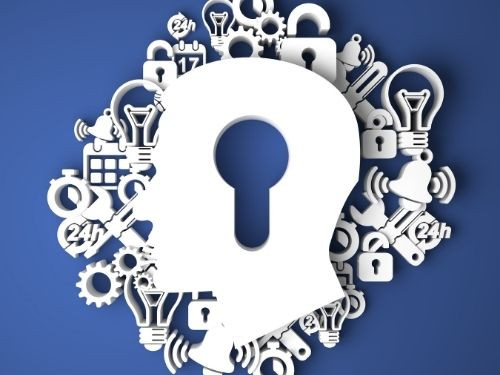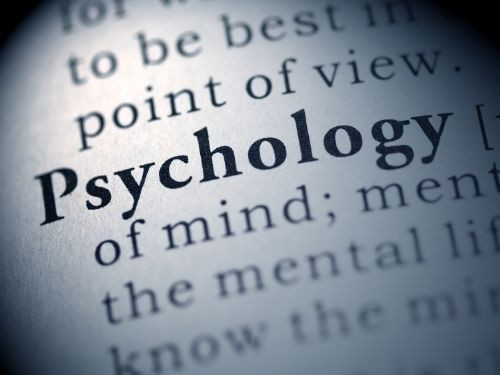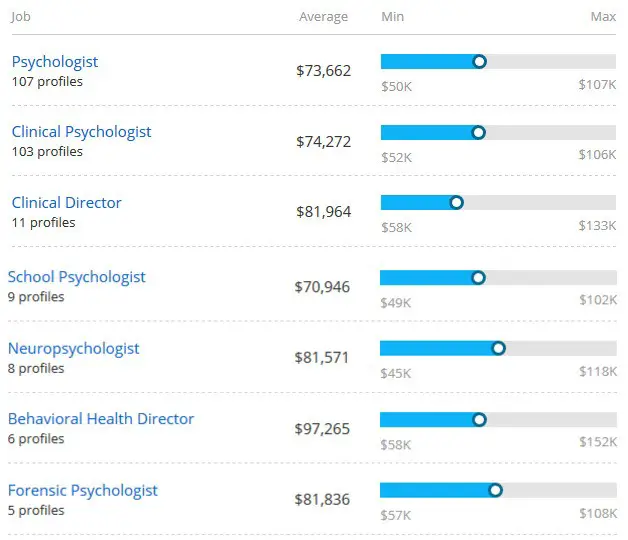How to become a Clinical Psychologist
This article provides in-depth information into What is a Clinical Psychologist? What Clinical Psychologists do? Degrees for Clinical Psychologists, Steps to become Clinical Psychologist and much more.
Clinical Psychologists cure more serious emotional, mental, and behavioral problems of his patients ranging from children to seniors. The contrast between a counseling psychologist and a clinical psychologist is that a counseling psychologist treats sound people who have few mental problems, whereas a clinical psychologist treats major issues. The treatment incorporates, meeting with the client, conducting different tests and interviews, setting up an arrangement for treatment, and checking the advances.
Steps to becoming a clinical psychologist,
- Earn a Bachelor's degree in Psychology
- Complete a Master's degree
- Get a Doctorate Degree
- Get clinical training under experienced professionals
- Earn a State License
- Continue education to maintain a license
The details encircling the career of child psychologist are tabulated as follows,
|
Career Title |
Clinical Psychologist |
|
Degree Requirements |
Doctoral Degree in Psychology |
|
Job Growth |
15% |
|
Experience required |
4 years |
|
Salary (2020) |
$111,920 |
|
How long to become a Clinical Psychologist |
8 years |
|
Required Skills |
Communication skills, Interpersonal, Attention to detail, problem-solving skills |
What does a Clinical Psychologist do ?
-
Identify different mental and behavioral issues.
-
Diagnose psychological disorders.
-
Prepare a treatment plan.
-
Guide the client to achieve certain goals for effective treatment.
-
Continuously monitor the client’s progress and adjust the plan if necessary.
-
Conduct and publish research on mental, behavioral, and emotional issues.
Steps for becoming a Clinical Psychologist
1
Complete Bachelor’s Degree
A Bachelor’s degree in psychology will give a solid foundation to students who want to pursue a career as a clinical psychologist. The student should also engage in research and internship to increase their chances of getting into a good college as this field is very competitive. Before pursuing further, learn the education requirements for clinical psychologists which gives a clear idea of the courses and training programs.

2
Complete Master’s Degree
Unlike bachelors, there is a specific program available in clinical psychology in Masters. To get enrolled in a master’s program in clinical psychology students should have a high GRE score and prior research work.

3
Earn A Doctorate Degree
Getting accepted in a doctorate degree in clinical psychology is a tough nut to crack, as only a dozen get selected from hundreds of applicants. There are two programs in doctorate level, Ph.D. in psychology or Doctor of Philosophy in Psychology and PsyD, or Doctor of Psychology degree. The first program is for students who want to go to the research field and the second one prepares the students for clinical work.

4
Complete Clinical Training
To get licensed as professional clinical psychologist students need to complete a two year or 3000 hours of the resident clinical training program under the supervision of a licensed clinical psychologist. the time and money you invest in this career path is worth and to plan better you must know the overall time consumed to become a clinical psychologist.

5
Get Licensed
To get a license a student has to earn a doctorate degree from an accredited program, complete training with a specific no of hours, and pass the Examination for Professional Practice in Psychology administered by the Association of State and Provincial Psychology Boards. To stay licensed a continuous education is mandatory.

Clinical Psychologist Degree Levels
Associate
An associate’s degree in psychology is 2-year course and provides a fundamental introduction to psychology. It’s a stepping stone toward a career as a clinical psychologist. Most of the entry-level jobs require at least a bachelor’s degree; associates can work with licensed psychologists.
Psychological Disorders
-
Diagnostic judgments
-
Diagnostic categories
-
DSM multi-axial system
Objectives
-
What constitutes a psychological disorder
-
Examine depression and addiction
-
Schizophrenia and dissociative disorders
Developmental Stages
-
Development Study
-
Practical Investigation
-
Reproductive biology
Objectives
-
The graph of how human mind develops
-
Human growth and skills
-
Theories of development
Personality Types and Theories
-
Three Dimensions of Personality Theory
-
Recent Trends in Personality
-
Individual Differences and Similarities
Objectives
-
To understand different types of personalities
-
Theories of formation of personalities
-
Identifying differences
Bachelors
A bachelor’s degree in psychology is a combination of science and liberal arts. Some students also choose to do a bachelor’s degree in sociology. Most of the bachelor's program in psychology or sociology is a combination of lecture and lab courses.
General Psychology
-
The evolution of psychology
-
Sensation and perception
-
Variations in consciousness
Objectives
-
Fundamentals of psychology
-
Application of scientific psychology
-
Formation of perception
Statistical Reasoning in Psychology
-
Descriptive statistics & probability distribution
-
Hypothesis testing
-
Statistical inference
Objectives
-
Fundamentals of statistical reasoning
-
Application of descriptive and inferential statistics
-
Conducting research
Biological Foundations of Psychology
-
Anatomy of the human brain
-
The relation between brain and mental illness
-
Effects of Drugs and Hormones on Behaviour
Objectives
- Relationship between human biological system and behavior
-
Tinbergen’s Levels of Analysis
-
Research methodology
Masters
A master’s degree in clinical psychology concentrates on a specific specialization and includes study of ethics, personality related tests and program evaluation.
Clinical Psychology
-
Definition of Normality/Abnormality
-
The Clinical Interview
-
Psychotherapy
Objectives
-
Diagnosis and treatment of mental illness and disabilities
-
Social and situational factors
-
Initiation and maintenance of human behavior
Applied Behavior Analysis
-
Observing and Measuring Behavior
-
Stimulus Control
-
Differential Reinforcement
Objectives
-
Changing human behavior
-
Application of techniques of human learning and motivation
-
historical perspective of ABA
Evaluation, Research, and Measurement
-
Validity and reliability
-
Hypothesis testing
-
Variables
Objectives
-
Introduce students to different theories
-
Skills and applications
-
Research methodology
Doctorate
Ph.D. programs in clinical psychology are highly selective. Many programs review over 250 applications annually and from that pool interview 25-50 students from which they select and accept only 4-8 graduate students. Students who are accepted into these highly competitive programs are often rewarded with full funding through graduate teaching and research assistantships as well as fellowships and grants that typically cover tuition, provide health insurance, and offer an annual stipend
Addiction and Recovery psychology
-
Effects of addictive behavior
-
Models and strategies for treating
- The social construction of addiction
Objectives
-
Identify behavior and traits of an addict
-
paths to recovery
-
Impact on psychology
Child therapy
-
Introduction to the world of children
-
Cognitive Behavioral Therapy
-
Issue in counselling
Objectives
-
Addressing mental health concerns of a child
-
Formulating treatments
-
Initiating a counseling relationship
Forensic psychology
-
Police Psychology
-
Criminal Insanity
-
Psychopaths
Objectives
-
Studies criminals and crimes
-
Understand traits of a criminal
-
Criminal psychology
Certificate
Online certification is best for the students who have a job, as becoming a clinical psychologist takes years and students have to work to support their studies. Luckily, online degrees in psychology are accessible at both the undergrad and graduate levels. Before enrolling in an online degree program, students should check to ensure it is properly accredited. At the undergraduate level, regional accrediting boards are the gold standard. Once students reach the graduate level, they should look for programs accredited by the American Psychological Association.
Adult Psychopathology
-
Ability to diagnose different mental disorders
-
Facilitating assessment and treatment plans
-
Understanding modern ideas of psychopathology
Objectives
-
Development of ideas
-
Psychopathology from history to modern ages
-
Diagnosis of mental disorder
Humanistic Theory
-
Driving forces behind human life
-
Ability to help patients recognize primal feelings.
-
How to properly diagnose and treat disorders
Objectives
- Historical underpinning of the field
-
The existentialist movement
-
Ideas of spirituality
Cross-Cultural Psychology
-
How social and cultural factors affect behavior
-
Ability to help patients recognize these influences
-
Frameworks devoted to addressing diversity and therapy
Objectives
-
Sociological and cultural implications of human behavior
-
Interplay of individual
-
Cultural contributions to personal and group growth
